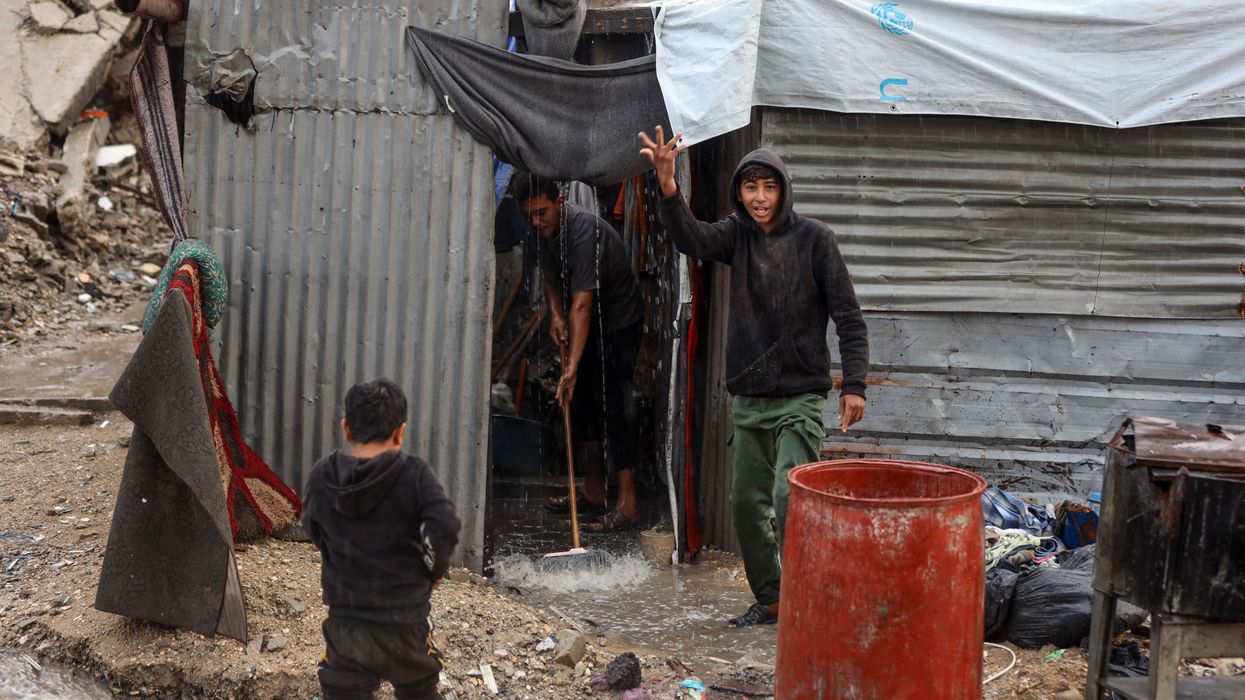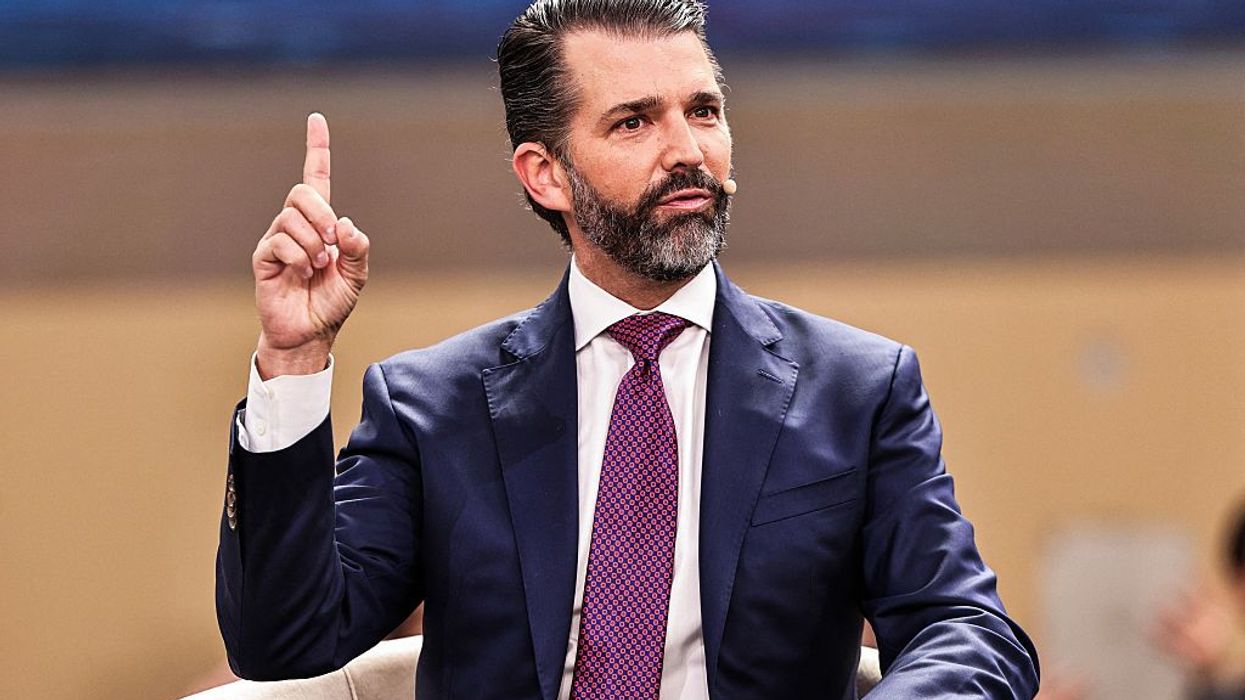April, 03 2014, 03:34pm EDT

For Immediate Release
Contact:
Tel: +44 (0) 20 7413 5566,After hours: +44 7778 472 126,Email:,press@amnesty.org
Impunity, Excessive Force and Links to Extremist Golden Dawn Blight Greek Police
LONDON
A long-standing culture of impunity, entrenched racism and endemic violence including the excessive use of force against protesters and ill-treatment of migrants and refugees, has been exposed by Amnesty International research into policing in Greece. It follows an official investigation into links between police and Golden Dawn.
By December last year nearly 50 people, including the leader of Golden Dawn and two police officers and five MPs, were arrested and charged with offences ranging from murder and causing explosions, to blackmail. Ten police officers were found to have direct or indirect links with criminal activities attributed to Golden Dawn members.
Now Amnesty International's report, A law unto themselves: A culture of abuse and impunity in the Greek police, exposes the many and persistent human rights violations by law enforcement officials. It details the root and branch nature of the lack of accountability and the failure to conduct prompt, thorough and impartial investigations into complaints.
"Our investigation shows that the Golden Dawn debacle is only the tip of the iceberg. Entrenched racism, excessive use of force and deep-rooted impunity are a blight on the Greek police. Successive Greek governments have failed so far to acknowledge, let alone tackle, these human rights violations by police and on-going impunity," said Jezerca Tigani, Europe and Central Asia Deputy Programme Director at Amnesty International.
"There is an urgent need for a comprehensive structural reform of law enforcement including the creation of an independent police complaint mechanism to investigate allegations of unlawful police conduct. The Greek authorities must restore the public confidence in Greek law enforcement structures."
Amnesty International has been documenting the unlawful behaviour of police in Greece over many years. Its new research looks at the situation over the last two years and concludes that it remains bleak.
At the end of March 2014, police at Nigrita Prison in northern Greece reportedly beat to death an inmate in solitary confinement. The autopsy revealed that he was extensively beaten on the soles of his feet and his chest, and that he had burns on his hands.
In the past three years, there has been a dramatic escalation in hate attacks against refugees and migrants. Hate crimes have also been recorded against the Roma community and the LGBTI community. Law enforcement officials have reportedly failed to prevent such attacks and/or have failed to investigate the hate motive behind them.
"With their actions Greek police pander to xenophobic far-right groups who are intent on attacking anyone who does not conform to their idea of mainstream society," said Jezerca Tigani.
"Police have been used as an indiscriminate tool by the authorities. Instead of maintaining law and order, all too often they have been tasked with stifling dissent and persecuting members of vulnerable groups. Their actions have been left without independent scrutiny and their transgressions unpunished. This has to change."
Golden Dawn
On 17 September 2013, Pavlos Fyssas, a musician and anti-fascist activist, was stabbed to death in Keratsini, a suburb of the capital Athens, by a member of Golden Dawn. Eyewitnesses told the national media that eight police officers belonging to the DIAS motorized police unit were already present at the scene when Pavlos Fyssas and his friends were ambushed by members of the far-right, but they did not intervene when Pavlos was chased by some of them and subsequently stabbed by Giorgos Roupakias.
On the following day riot police dispersed demonstrators protesting against the murder of Pavlos Fyssas with batons and chemicals. Thirty one protesters sought medical treatment, many of them with head injuries. The protesters reported that they had been beaten with police batons, helmets and shields. They were pelted with stones by members of far-right groups while riot police stood by and failed to protect them. Gavril, a 32-year-old protester, lost his right eye and had undergone three operations by the end of October 2013.
The case of Pavlos Fyssas prompted a major police investigation into the activities of Golden Dawn and links with the police.
Brutal treatment of refugees and migrants
Police in Greece are tasked with controlling migration and detaining and deporting irregular migrants. Under the ongoing sweep operation "Xenios Zeus" between April 2012 and June 2013 more than 120,000 foreign nationals were stopped for identity checks. Of those, only nearly 7,000, or about five per cent, were found without identity papers.
K, a Syrian refugee, described his ill-treatment by police at the Corinth immigration detention centre in February 2013: "The same policeman began to kick me ... I tried to stand and the policeman hit me again ... then he asked two police officers to take me to a room where I could not be seen by other detainees ... [In the room] the policemen started kicking my chest ... then a policeman slapped me and started beating me with his fists on my face."
Hate crimes
In January 2013, two Greek nationals stabbed to death S. Luqman, a Pakistani national living in Greece. However, police and prosecutors did not take into account the possible racist motive of the attack. The killing of S. Luqman showed many of the elements of an organized racially motivated attack by a "hit squad" linked with Golden Dawn. Their trial is currently on-going.
In September 2013, a Greek woman was recorded on camera kicking a Roma girl playing the accordion on a pedestrian street under the Acropolis in Athens. The police opened an investigation into the incident and the alleged hate motive only after the insistence of the non-governmental organization, Greek Helsinki Monitor.
Amnesty International is a worldwide movement of people who campaign for internationally recognized human rights for all. Our supporters are outraged by human rights abuses but inspired by hope for a better world - so we work to improve human rights through campaigning and international solidarity. We have more than 2.2 million members and subscribers in more than 150 countries and regions and we coordinate this support to act for justice on a wide range of issues.
LATEST NEWS
Human Rights Group Warns US Gaza Plan Will Impose 'Unlawful Collective Imprisonment' of Palestinians as New Details Emerge
“The design of these proposed cities mirrors the historical model of ghettos,” said the Euro-Mediterranean Human Rights Monitor, which said the US plans to cram 25,000 people into areas smaller than a square kilometer.
Dec 04, 2025
A prominent international human rights organization is warning that the United States' plan for postwar Gaza will impose "unlawful collective imprisonment" on the Palestinian civilians who have survived two years of genocide.
In November, several news outlets reported on the Trump administration's plan to carve Gaza in two: a so-called “green zone” controlled by Israel and a “red zone” controlled by the militant group Hamas.
The US would construct what it called “Alternative Safe Communities” for Palestinians to live in the Israeli-controlled portion of Gaza, which is over half of the territory under the current "ceasefire" agreement.
The New York Times described these communities as "compounds" of 20,000 to 25,000 people, where Israeli officials reportedly argued they should not be allowed to leave.
The initial reporting raised fears that the US and Israel were constructing what would amount to a "concentration camp," where Palestinians would be forced to live in squalid conditions without freedom of movement.
On Wednesday, the Euro-Mediterranean Human Rights Monitor released new details on how Palestinians, currently facing mass displacement from their homes in the portion of the strip not occupied by Israel, would be corralled into the green zone under the US proposal.
The Geneva-based group issued a stark warning about the plan, which it said carried "grave risks, including the effective displacement of Palestinians from their homes and the transformation of large parts of Gaza into closed military zones under the direct control of the Israeli army."
“Entry and exit would be permitted only through security screening, effectively converting these sites into overcrowded detention camps that impose severe restrictions on residents’ freedom of movement and daily life."
Euro-Med's report explains that the transfer of Palestinians would be carried out using "various pressure tactics."
"This is done by creating a coercive environment in the red zone and making access to relative protection and basic services conditional on relocating to designated areas within the green zone, following extensive security screening and vetting," the report says. "This removes any genuine element of consent and places the process squarely within the scope of forced displacement prohibited under international humanitarian law."
It also provides new details on the conditions Palestinians would be subject to once they've arrived: "The plan includes the establishment of 'cities' of prefabricated container homes (caravans) in the green zone, each housing around 25,000 people within an area of no more than one square kilometer and enclosed by walls and checkpoints."
This means these Palestinian cantons would be over three times as densely populated as the Tel Aviv District, the most crowded in Israel, which has about 8,130 people per square kilometer.
"Entry and exit would be permitted only through security screening, effectively converting these sites into overcrowded detention camps that impose severe restrictions on residents’ freedom of movement and daily life," the report continues.
This is not the first proposal to use the promise of safety to lure Palestinians into an enclosed space without the right to leave.
Earlier this year, following US President Donald Trump's call for the people of Palestine to be forcibly removed from the Gaza Strip, Israeli Defense Minister Israel Katz proposed the creation of a massive “humanitarian city” built on the ruins of Rafah that would be used as part of an “emigration plan” for hundreds of thousands of displaced people.
Under that plan, Palestinians would have been given “security screenings” and once inside would not be allowed to leave. Humanitarian organizations, including those inside Israel, roundly condemned the plan as essentially a “concentration camp.”
Euro-Med said that the design laid out in the new US plan "mirrors the historical model of ghettos, in which colonial and racist regimes confined specific groups to sealed areas surrounded by walls and guard posts, with movement and resources controlled externally, as seen in Europe during World War II and in other colonial contexts."
Keep ReadingShow Less
‘Somebody’s Getting Rich’: Senator Suggests Trump Pardon Spree Is Yet Another Grift
"There's clearly a whole group of people around him that are making millions of dollars, and they're handing out favors to folks in the form of pardons," said Democratic Sen. Chris Murphy.
Dec 04, 2025
A Democratic US senator suggested during a television appearance late Wednesday that President Donald Trump's flurry of pardons for fraudsters and other white-collar criminals—from disgraced politicians to former corporate executives—is yet another cash grab concocted by the president's inner circle and lobbyists with ties to the White House.
“My sense is that somebody is getting rich, ultimately,“ Sen. Chris Murphy (D-Conn.) told MSNBC's Chris Hayes shortly after Trump pardoned a former entertainment venue executive who was indicted by the president's own Justice Department over the summer.
"There is a cabal of administration officials and MAGA-friendly lobbyists that are in league together," Murphy continued. "They all huddle together at these elite restaurants and clubs in Washington, DC, and they likely hatch deals in which, if somebody pays a MAGA-affiliated lobbyist a couple hundred thousand dollars, then maybe you’ll be able to get a pardon.”
"There's clearly a whole group of people around him that are making millions of dollars, and they're handing out favors to folks in the form of pardons in order to make sure that they get their pockets lined," the senator added. "That's just, like, bread and butter corruption."
Watch:
The pardons Trump is handing out are a huge, growing scandal that not enough people are talking about. This is a money making operation - for for Trump, his family, his crypto pals, and the Trump-affiliated lobbyists and grifters who the pardon seekers pay. pic.twitter.com/FwLRyHDMqN
— Chris Murphy 🟧 (@ChrisMurphyCT) December 4, 2025
Since the start of his second term, Trump has used his pardon power to rescue well-connected executives and political allies from accountability, invariably claiming—without evidence—that the Biden administration manufactured the charges.
Many of those pardoned have been accused or convicted of white-collar crimes; "fraud" appears 57 times on the Justice Department page listing the names and offenses of those who have received clemency from the president this year.
Trump's willingness to unthinkingly pardon fraudsters has spawned a lucrative business for lobbyists and consultants linked to the administration. NBC News reported earlier this year that "two people directly familiar with proposals to lobbying firms said they knew of a client’s offer of $5 million to help get a case to Trump."
Changpeng Zhao, the billionaire founder of the cryptocurrency exchange Binance, reportedly had a lobbyist working to secure his pardon, which came in late October.
"I don't know who he is," Trump said when asked about the decision, adding that "a lot of people asked me" to pardon Zhao, who pleaded guilty in 2023 to "failing to maintain an effective anti-money laundering program."
Trump also made history with what's believed to be the nation's first-ever presidential pardon of a corporation: HDR Global Trading, the owner and operator of crypto exchange BitMEX. The company was sentenced earlier this year to a $100 million fine for violating anti-money laundering laws.
In a report published in September, Murphy detailed how corporate pardons "are happening throughout the federal government, in the form of rescinded orders, dropped cases, and the first-ever presidential pardon for a corporation." The watchdog group Public Citizen estimates that the Trump administration has halted or dropped more than 160 corporate enforcement cases since the start of the president's second term.
"Corporate pardons are just one of the ways that Trump is replacing democracy and rule of law with authoritarian power and rule by personal favor," Murphy wrote in his report. "If we are going to save our democracy, we need to act now."
Keep ReadingShow Less
Yet Another Trump Jr.-Backed Company Receives Massive Pentagon Deal
One legal expert said the contract "falls under the cloud of conflicts of interest we have seen throughout this administration."
Dec 04, 2025
For the second time this year, a little-known company backed by Donald Trump Jr. has scored a major contract with the US Department of Defense.
The Financial Times reported on Wednesday that Vulcan Elements—a tiny startup of 30 employees that specializes in producing rare-earth magnets used in drones, radars, and other pieces of military equipment—has scored a $620 million loan from the Pentagon as part of "a $1.4 billion deal to increase the supply of magnets for industries alongside partner ReElement Technologies."
Vulcan has received funding from 1789 Capital, a venture capital firm founded by pro-Trump donors in 2023 that brought Trump Jr. in as a partner last year. According to the Financial Times' analysis, "at least four of 1789’s portfolio companies have won contracts from the Trump administration this year, amounting to more than $735 million."
Revelations about the Vulcan Elements contract come just weeks after the Florida-based drone startup Unusual Machines, in which Trump Jr. has held a $4 million stake, received a contract from the US Army to manufacture 3,500 drone motors. Additionally, reported the Financial Times, the Army indicated that it planned "to order an additional 20,000 components" from the Trump Jr.-backed firm next year.
As Popular Information reported earlier this year, Unusual Machines first brought Trump Jr. on as an adviser just weeks after his father won the 2024 presidential election, even though he had "no notable experience with drones or military contracting."
A Popular Information report published Thursday noted that "both Vulcan CEO John Maslin and Unusual Machines CEO Allan Evans said that Trump Jr. played no role in securing the government contracts," although the report flagged statements by Trump Jr. made earlier this year about helping to screen candidates for key positions in the Pentagon who would be in position to reward companies he's backing without him having to make a direct appeal.
Kedric Payne, general counsel at the Campaign Legal Center, told the Financial Times that that the government deals scored by Trump Jr.-backed companies look ethically dubious even if the president's son didn't directly use his influence to procure them.
“Presidents are expected to avoid even the appearance that they are using their office to financially benefit themselves or their family,” he said. “While we do not know for certain if, or how, the president may have influenced this loan, it falls under the cloud of conflicts of interest we have seen throughout this administration.”
Keep ReadingShow Less
Most Popular


